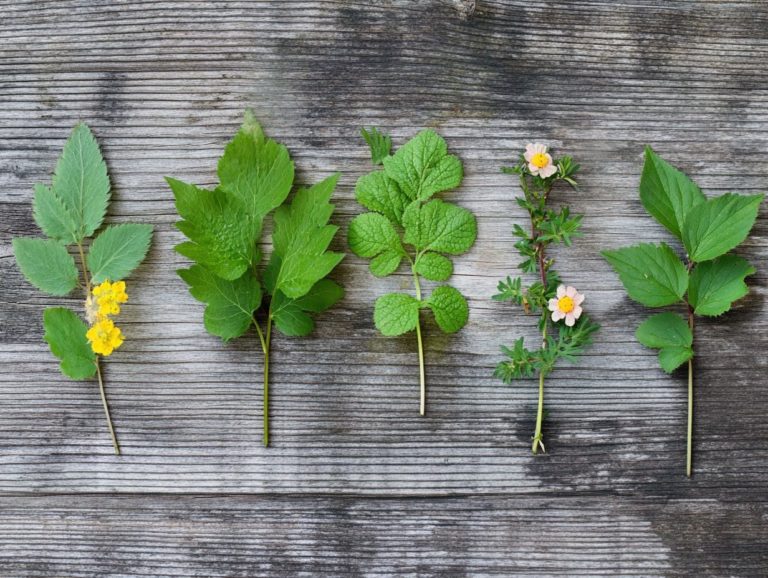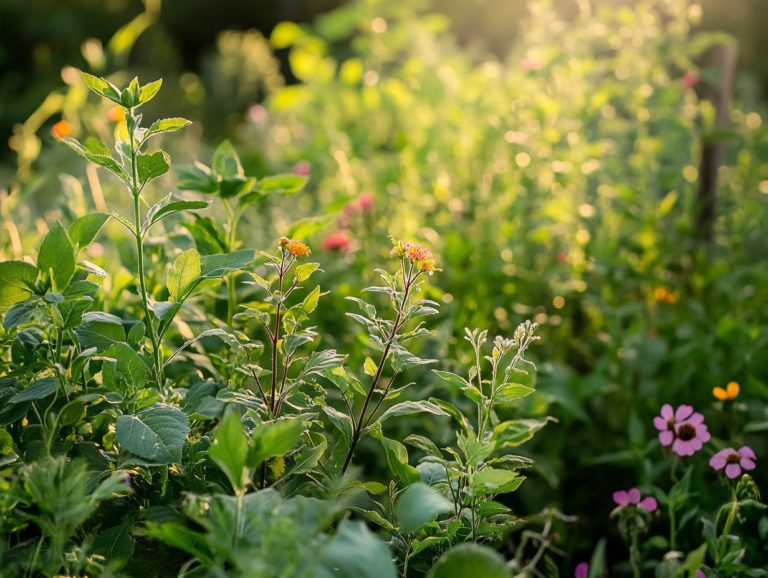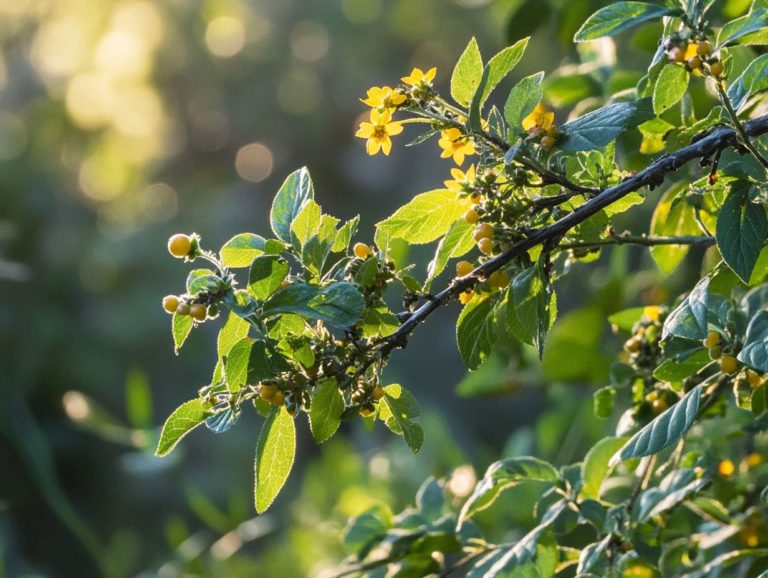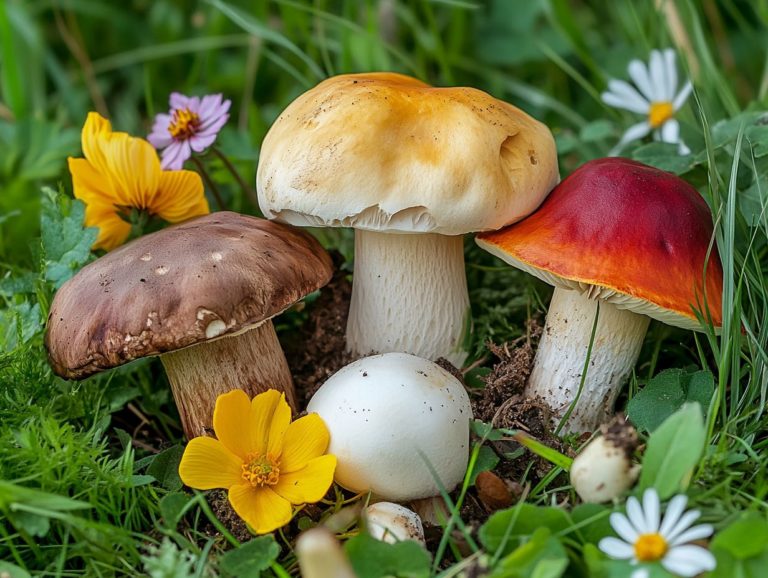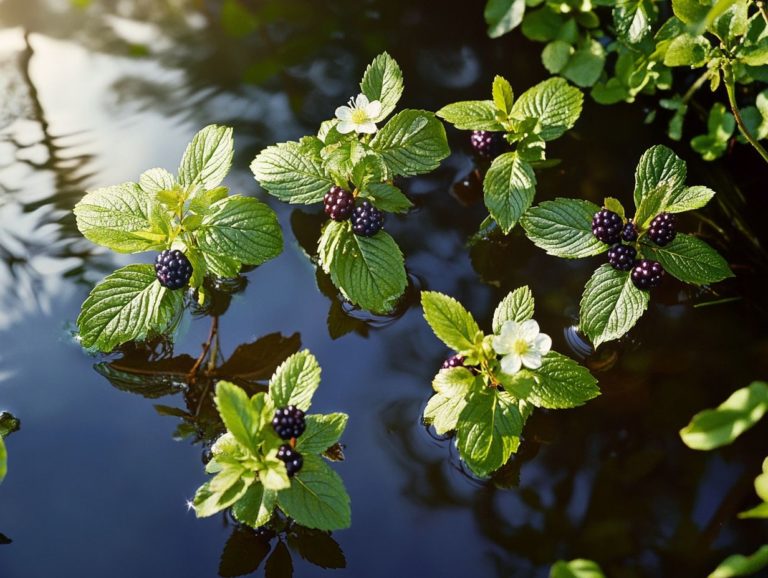The Importance of Field Notes in Foraging
Foraging is a time-honored practice that intricately links you to nature and your food sources, yet it often comes with a side of uncertainty.
By maintaining detailed records, you enrich your foraging experience. You also enhance your identification skills and knowledge. This discussion delves into the significance of field notes for foragers, highlighting essential details to include, effective methods for organizing your notes, tips for accurate identification, and the advantages of sharing your discoveries with others.
Get ready to take your foraging to the next level!
Contents
- Key Takeaways:
- The Role of Field Notes in Foraging
- What to Include in Field Notes
- How to Organize and Keep Field Notes
- Using Field Notes for Identification
- The Benefits of Sharing Field Notes
- Frequently Asked Questions
- What exactly are field notes, and why should foragers care?
- How can field notes help foragers identify and track useful plants and mushrooms?
- What information should be included in field notes for foraging?
- How can field notes help foragers stay safe while foraging?
- Why is it important to write down any changes or updates to field notes?
- How can field notes be used for research and education purposes?
Key Takeaways:

- Field notes are crucial for successful foraging as they help foragers keep track of important details such as location, date, and weather conditions.
- When taking field notes, it is important to record specific information like plant characteristics, possible uses, and any potential dangers.
- Effective organization and sharing of field notes can lead to improved identification accuracy and collaboration with other foragers for learning and growth.
The Role of Field Notes in Foraging
Field notes are an invaluable resource for you as a forager, enabling you to meticulously document your outdoor experiences and observations in real-time. These notes capture descriptive information about wild edible plants, foraging techniques, and sensory descriptions, all of which deepen your understanding of the natural world.
Field notes also enrich your creative process, offering you a chance to reflect on your nature-centered pursuits while collecting essential information that bolsters your foraging efforts.
Why Field Notes are Essential for Foragers
Field notes are essential for foragers, offering a structured approach to documenting experiences that is particularly valuable for those navigating chronic pain or disability issues. This practice helps you connect deeply with nature.
By recording your observations and reflections, you create a personal narrative that enhances your engagement with the environment. This encourages you to pause and truly notice your surroundings, helping you become more aware and elevating your outdoor experience.
As you write about sensations like the rustle of leaves or the warmth of sunlight, you can gain insights into how these elements affect your physical and emotional states. Such reflections can reveal patterns in your responses, ultimately leading you to a deeper understanding of yourself and your place within nature.
What to Include in Field Notes
When crafting your field notes, it s essential to incorporate key details that elevate the quality of your descriptive information. This practice not only enriches your understanding but also supports successful mushroom foraging and the identification of wild edible plants.
Important Details to Record

Important details to capture in your field notes include sensory descriptions, reflections, and impressions, along with precise environmental observations that enhance your understanding of various species.
Keeping a close eye on the weather helps you understand how temperature and humidity affect plant growth and distribution. It’s crucial to document specific plant characteristics such as leaf shape, flower color, and growth patterns. This not only aids in accurate identification but also helps you appreciate seasonal variations.
Contextual observations like the surrounding flora and fauna or the type of soil can enrich the data you collect. Using this complete approach helps you gather better information, allowing you to develop more effective techniques and cultivate a stronger connection with your environment.
How to Organize and Keep Field Notes
Organizing and maintaining your field notes with precision is essential. It ensures that the information you gather during your fieldwork remains easily accessible and valuable for future reference.
This meticulous approach not only streamlines your research but also enriches your entire foraging experience.
Effective Methods for Note Taking
Effective note-taking methods encompass utilizing the voice-to-text feature on your smartphone, recording audio, and employing traditional writing techniques to capture insights during your foraging outings.
Embracing technology streamlines your note-taking process, allowing for better organization of your thoughts and observations. For example, using audio recording apps enables you to capture detailed descriptions and the ambient sounds of your surroundings, creating a rich sensory experience that mere written notes often fail to convey.
Voice memo applications allow you to quickly document fleeting ideas before they slip away, ensuring that no valuable insight is left behind.
Traditional methods like journaling and using notepads hold immense value. They offer space for deeper reflection and personalized documentation that technology sometimes misses.
When you combine these varied approaches, you can develop a comprehensive system that enhances your exploration of nature.
Using Field Notes for Identification
Utilizing field notes for identification is an essential practice for foragers. These notes serve as a dependable resource, allowing you to recognize wild edible plants and mushrooms through your own documented observations.
Tips for Accurate Identification

To ensure you accurately identify species while foraging, rely on your field notes, paying close attention to the observational details and sensory experiences that add context to your findings.
By cross-referencing these notes with reputable field guides, you can significantly enhance your understanding of various species. Engaging with the foraging community offers you a golden opportunity to share insights and exchange valuable tips and techniques.
Meticulously documenting your experiences, including growth patterns, habitat details, and ecological interactions, helps you learn more about local plants. This practice sharpens your identification skills and cultivates a profound respect for the environment, enabling you with the wisdom that comes from collaboration and continuous learning.
The Benefits of Sharing Field Notes
Sharing your field notes can supercharge your foraging experience! It brings a wealth of advantages, fostering collaboration within the foraging community and enriching citizen science contributions by creating a collective reservoir of knowledge and experience.
Collaborating and Learning from Others
Collaborating and learning from others in the foraging community can significantly enhance the quality of your field notes, creating a vibrant environment where knowledge flows freely and your outdoor experiences become even more enriching.
By joining local foraging groups or online platforms, you open the door to a wealth of opportunities for growth. You can compare observation techniques, share your successful foraging adventures, and discuss the potential pitfalls you’ve faced along the way.
Such interactions will refine your skills, elevating you from a novice forager to a more adept harvester. Participating in initiatives like community wild food festivals or workshops, where groups come together to identify and prepare foraged foods, can be particularly rewarding. Don’t miss out on the chance to enhance your skills at local events! Join now!
These gatherings not only sharpen your personal skills but also contribute to citizen science projects initiatives where regular people help scientists collect data helping to record local biodiversity and track seasonal changes in plant availability. Ultimately, this enriches the entire foraging community, making every outing more meaningful.
Frequently Asked Questions
What exactly are field notes, and why should foragers care?

Field notes are written records of observations and information gathered while foraging. They are important because they help foragers remember details about the location, time, and conditions of their foraging activities.
How can field notes help foragers identify and track useful plants and mushrooms?
Keeping detailed field notes helps foragers remember plants and mushrooms they ve found before. This practice aids in recognizing similar species and tracking seasonal changes in plant growth.
What information should be included in field notes for foraging?
Include the date, time, location, and weather conditions in your field notes. Descriptions of the plants and mushrooms, along with any notable features or uses, are also important.
How can field notes help foragers stay safe while foraging?
Field notes remind foragers of hazards like poison ivy or steep cliffs. They also serve as documentation in case of accidents or injuries.
Why is it important to write down any changes or updates to field notes?
Field conditions can change rapidly. Regularly updating your notes ensures you have accurate information for future foraging trips.
How can field notes be used for research and education purposes?
Sharing field notes within the foraging community enhances research and education on local plants and mushrooms. By documenting experiences, foragers contribute to community-led research projects and help create educational materials for the public.

